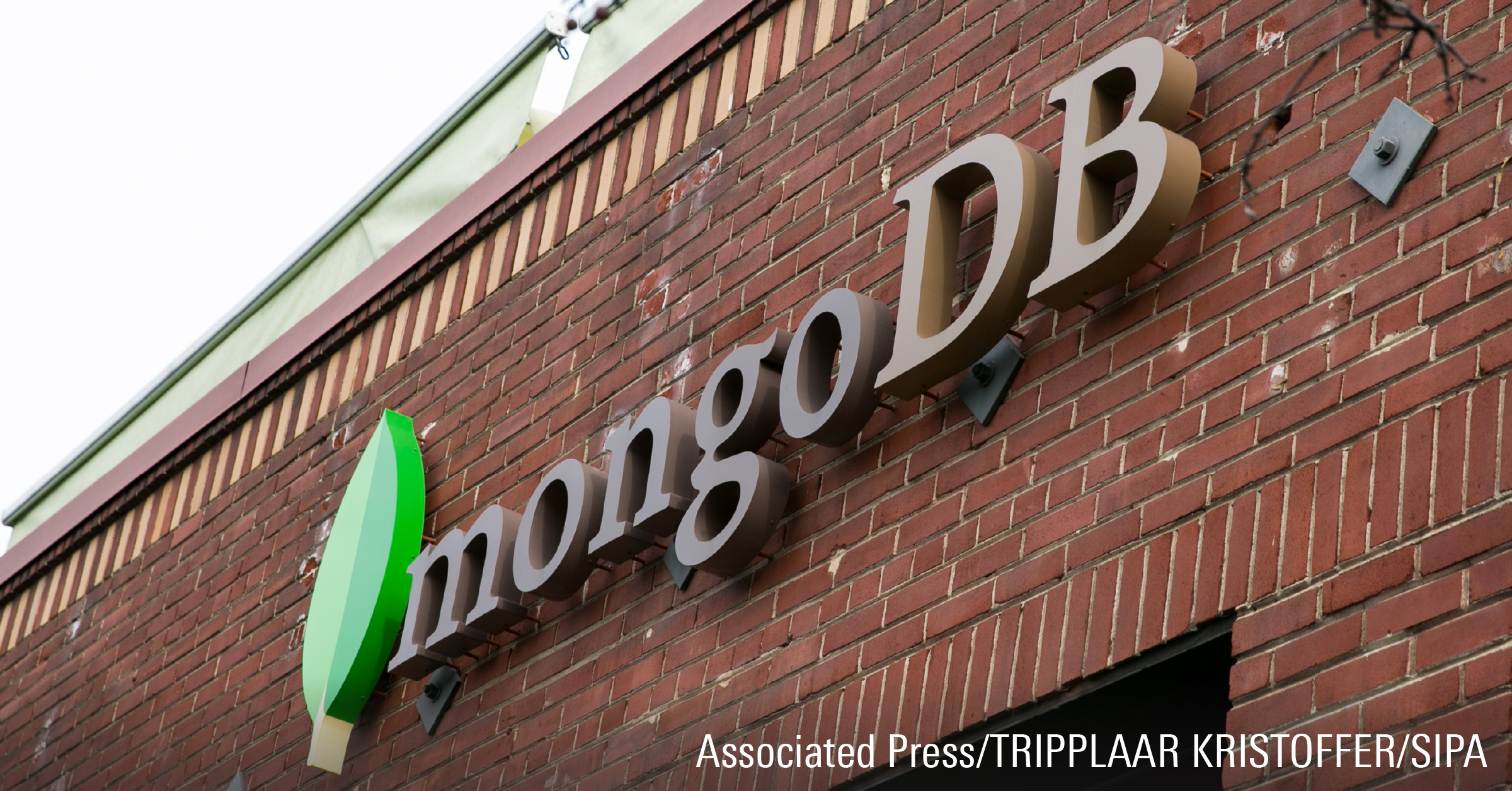After Earnings, Is MongoDB Stock a Buy, a Sell, or Fairly Valued?
With strong enterprise revenues and significant market share potential, here’s what we think of MongoDB’s stock.

MongoDB MDB released its first-quarter earnings report on May 20. Here’s Morningstar’s take on MongoDB’s earnings and stock.
Key Morningstar Metrics for MongoDB
- Fair Value Estimate: $330.00
- Morningstar Rating: 4 stars
- Morningstar Economic Moat Rating: None
- Morningstar Uncertainty Rating: High
What We Thought of MongoDB’s Q1 Earnings
- MongoDB’s revisions to its guidance were disappointing but not necessarily surprising, given the company’s exposure to volatile consumption-based revenue. A bright spot was its strength in enterprise revenues, which contributed to a revenue beat.
- Despite the macroeconomic slump, MongoDB operates in one of the fastest-increasing software markets. We believe it has a greater share potential than what the market is baking in, hence our above-consensus outlook even with its reduced fair value estimate.
- We are encouraged that the guidance adjustment is due to temporary headwinds rather than long-term vulnerabilities like customer churn to competition.
MongoDB Stock Price
Fair Value Estimate for MongoDB
Our fair value estimate for MongoDB is $330 per share. Our valuation implies a forward fiscal-year enterprise value/sales of 14 times. The firm is in its infancy, but it has a massive market opportunity and a large runway for growth, in our view. We expect this substantial growth to be driven by continued shifts of workloads to a cloud environment, prompting the database market to grow as companies realize how much easier it is to scale data storage in the cloud. In turn, this implies substantial usage growth per customer for MongoDB.
Additionally, we think MongoDB’s database-as-a-service offering, Atlas, and data lake will bring significant new revenue streams to the company. Atlas revenue eclipsed on-premises sales in early fiscal 2022. We forecast that MongoDB’s gross margins will stay relatively the same, as the company’s increasing mix of Atlas revenue is somewhat margin-dilutive in the near term. We expect GAAP operating margins to increase from negative 14% in fiscal 2024 to 29% in fiscal 2034 because of operating leverage as revenue growth exceeds operating expenses.
Read more about MongoDB’s fair value estimate.
MongoDB Stock vs. Morningstar Fair Value Estimate
Economic Moat Rating
We do not assign MongoDB an economic moat. We think the company benefits from significant switching costs with the customers that it has captured thus far, but it is still in its customer acquisition phase, and it’s unclear whether this will lead to excess returns on invested capital over the next 10 years. MongoDB lacks profitability and continues to spend aggressively on sales and marketing.
Read more about MongoDB’s economic moat.
Financial Strength
We believe MongoDB is financially stable, and we are confident it will generate positive free cash flow in the long term. The firm had cash and cash equivalents of $2 billion at the end of fiscal 2024, with $1.14 billion in convertible debt on its balance sheet. We forecast that MongoDB will become free-cash-flow-positive in fiscal 2028, after which we believe it will continue to invest heavily in its business rather than distribute dividends or perform major stock repurchases.
Read more about MongoDB’s financial strength.
Risk and Uncertainty
We assign MongoDB a High Uncertainty Rating due to its place in a technological landscape that has the potential to shift rapidly. However, we do not foresee any material environmental, social, or governance issues.
The firm faces uncertainty based on future competition, with the risk of Amazon AMZN encroaching on its abilities. Currently, Amazon’s DocumentDB service claims it has MongoDB compatibility to help companies deploy MongoDB at scale in the cloud. At the moment, DocumentDB has significant limitations compared with MongoDB. In contrast with Atlas, it can’t support rich data types, is only interoperable with AWS, and has only 63% compatibility with MongoDB. While many open-source software companies have suffered from Amazon reselling their software for a profit (for example, Elastic was repackaged into Amazon Elasticsearch), MongoDB is protected against this risk, as its software license bans Amazon from reselling their software on AWS.
Read more about MongoDB’s risk and uncertainty,
MDB Bulls Say
- MDB’s document-based database is best-equipped to remove fear of vendor lock-in and is poised for a strong future.
- MongoDB’s new data lake could gain significant traction, making the firm even stickier, as we believe data lakes have even greater switching costs than databases. In turn, this could further boost returns on invested capital.
- MongoDB could eventually launch a data warehouse offering, increasing customer switching costs.
MDB Bulls Say
- Document-based databases could decrease in popularity if a new NoSQL variation arises that better meets developer needs.
- Cloud service providers like AWS could catch up to MongoDB’s rich features.
- MongoDB’s growth profile could be worse than expected. If the firm can’t reaccelerate growth in fiscal 2026 after a slower 2025, the current valuation would look too rich and there could be a significant downside
This article was compiled by Krutang Desai.
The author or authors do not own shares in any securities mentioned in this article. Find out about Morningstar’s editorial policies.

/s3.amazonaws.com/arc-authors/morningstar/f497c984-8e67-4c32-8c6c-210934e57017.jpg)
/cloudfront-us-east-1.images.arcpublishing.com/morningstar/Z34F22E3RZCQRDSGXVDDKA7FGQ.png)
/cloudfront-us-east-1.images.arcpublishing.com/morningstar/5FJIYHKNZRBM3LAKQL2QEUMDTA.png)
/cloudfront-us-east-1.images.arcpublishing.com/morningstar/Q3KIND5VXRCNHHH6JQHCCYBSSA.png)
:quality(80)/s3.amazonaws.com/arc-authors/morningstar/f497c984-8e67-4c32-8c6c-210934e57017.jpg)